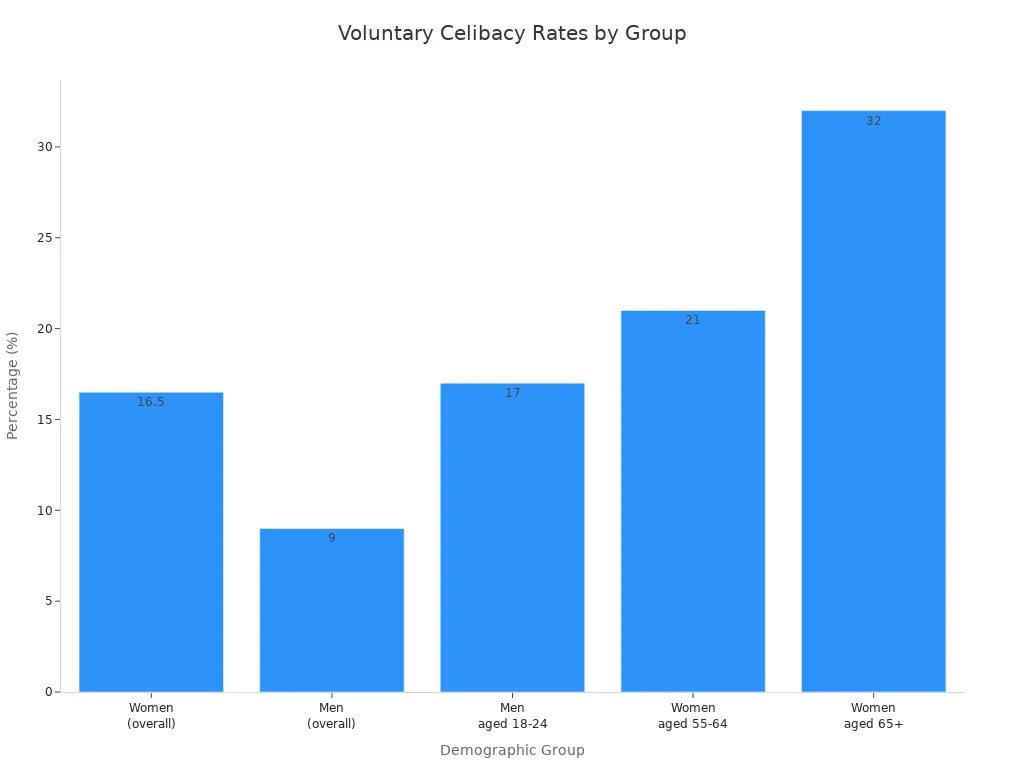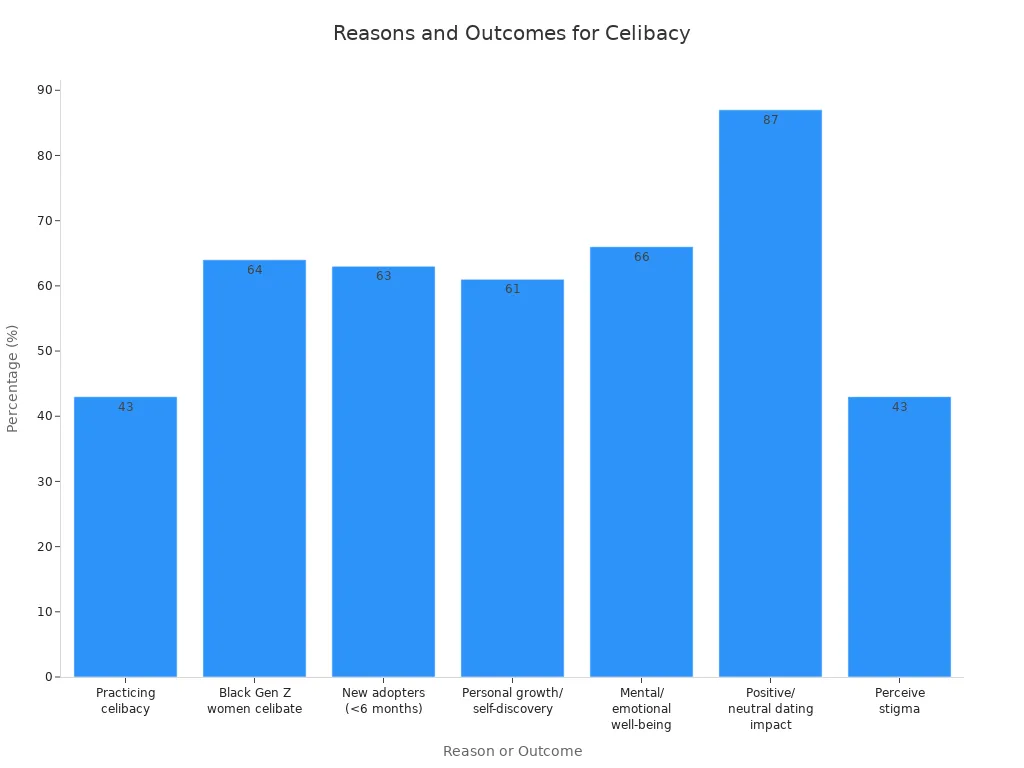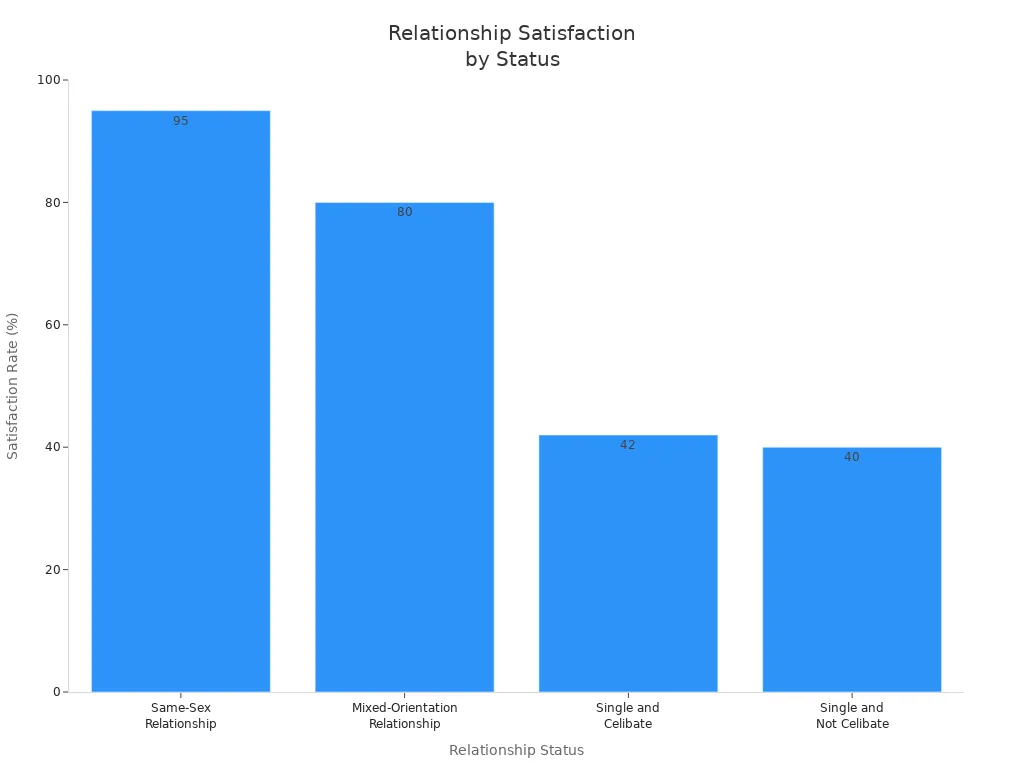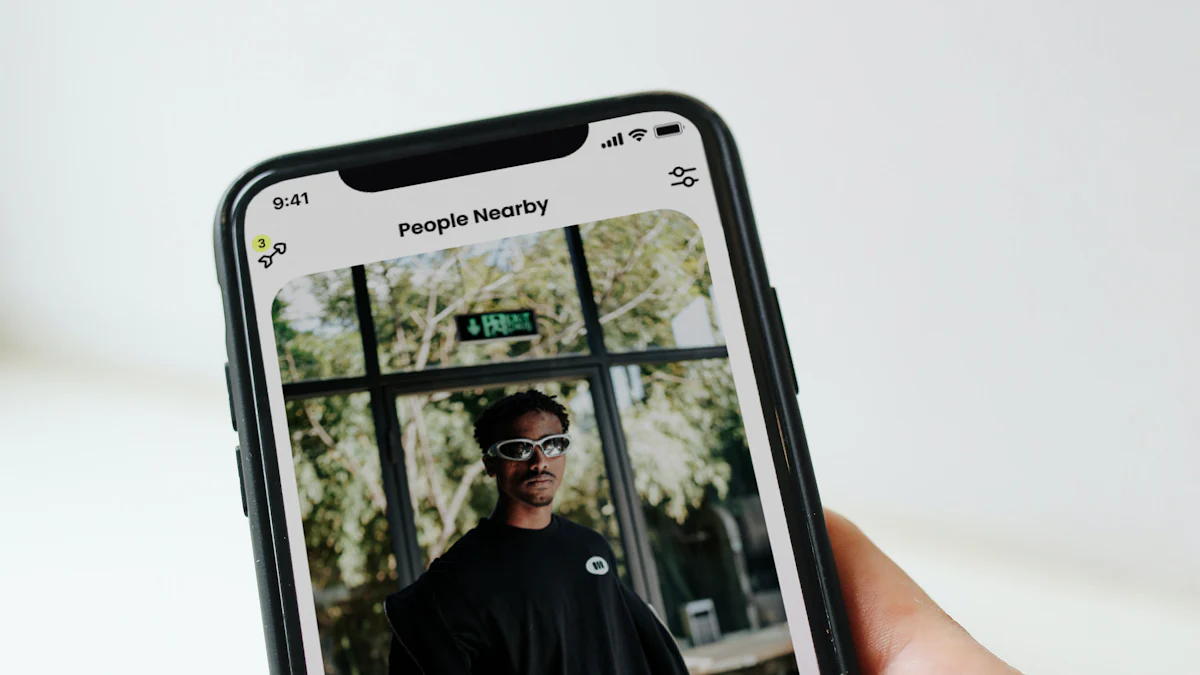Have you ever thought about what it is like to date but not have sex? In dating, celibacy means you choose to stop having sex. You might do this for a little while or for a long time. This is not the same as abstinence. Abstinence is usually about waiting for a reason, like marriage. Many people make this choice, both young and old. For example, 17% of men ages 18-24 in the U.S. are voluntarily celibate. Also, 32% of women over 65 in the U.S. are voluntarily celibate.

No matter what you have done, you can be part of this talk.
Key Takeaways
Celibacy means choosing not to have sex for personal, spiritual, or growth reasons. It is not the same as short-term abstinence. Many people choose celibacy to learn about themselves. They also want to heal and focus on their values and goals. Clear communication and setting boundaries help build trust and respect when dating while celibate. Society may judge celibacy, but staying strong in your choice can make you more confident. It can also help you have healthier relationships. Celibacy gives emotional benefits like less stress and more focus. It can also bring challenges, but you can overcome them with support and honesty.
What Is Celibacy?
Celibacy in dating means you decide not to have sex or romantic partners for some time or maybe forever. People might pick this for personal growth, spiritual reasons, or to focus on themselves. Many call this time their “celibacy era.” Experts say more people are trying this, especially those who want to think and get better at life. Some use this time to take back control of their bodies and minds. You might see that younger people are dating less and having less sex. This links to more anxiety and new social rules.
Celibacy vs. Abstinence
Some people use “celibacy” and “abstinence” like they are the same. They are not. Celibacy is often for a long time or even forever. It usually has a spiritual or personal growth reason. Abstinence is more short-term and can change. People do abstinence for health, feelings, or to wait for the right person. The table below shows how they are different:
Aspect | Celibacy | Abstinence |
|---|---|---|
Definition | A choice, often for life, to not have sexual relationships, usually for spiritual, religious, or big personal reasons. | Not having sex for a while, for health, personal limits, or feelings. |
Duration | Lasts a long time or forever. | Short-term and can change. |
Intent | Focus on spiritual or personal growth. | Many reasons like health or feelings. |
Flexibility | Not much change; very strict. | Can change; more flexible over time. |
Emotional Connection | Avoids deep feelings to focus on self and spirit. | May or may not avoid feelings; depends on the person. |
Religious Significance | Often linked to religion and spiritual goals. | Sometimes about religion but not as strict. |
Social Perception | Seen as a strong and respected choice. | People know about it but it is not as big a deal. |
Common Misconceptions
Many people do not understand celibacy. Here are some common myths:
People mix up celibacy and abstinence, but they are different.
Some think celibacy is just not having sex, but it can also help your mind and spirit.
You might hear that celibacy is lonely. But many people feel strong and happy with it.
Some believe celibacy is forced or only for religious people. But anyone can choose it for many reasons.
Others think a relationship without sex cannot be healthy. Experts say you can have closeness and love without sex.
Remember, you should choose celibacy for your own reasons and needs, not because of pressure or wrong ideas.
Why Choose Celibacy?
Self-Discovery
You might pick celibacy to learn about yourself. Many people use this time to grow and practice self-control. Studies say 61% of people do celibacy for self-discovery or growth. When you take a break from dating or sex, you can think about what you need. This pause lets you reflect and make new goals. People often feel more sure of themselves and in charge. You may feel less stress and have more energy for school, work, or hobbies.
“Celibacy is not about missing out. It is about finding out who you are and what you want.”
Personal Values
Your values matter a lot in dating. Some people choose celibacy to heal from old relationships. Others want to avoid bad dating scenes. Some focus on mental health or spiritual growth. For example, 66% of people say they feel better after choosing celibacy. You might want to stop old habits or set better boundaries. This choice can help you feel strong and real in your relationships.
Reason/Statistic | Details |
|---|---|
Practicing celibacy | |
Black Gen Z women celibate | 64% |
New adopters (less than 6 months) | 63% of celibate women |
Personal growth/self-discovery | 61% cite this reason |
Mental/emotional well-being improvement | 66% report improvement |
Positive/neutral impact on dating life | 87% report positive or no difference |
Perception of stigma | 43% feel stigma remains in Black community |
Modern Trends
Celibacy is getting more popular, especially with young adults. In the last ten years, more people wait before sex or dating. Social media helps spread this idea. On TikTok, #celibacy has over 195 million views. Many young people want to skip hookup culture and focus on their goals. National surveys show more young men and women are not having sex. Choosing celibacy is now seen as a way to take charge and build a better future.

Dating While Celibate

Communication
When you date and practice celibacy, talking clearly is very important. You should tell your partner about your choice early on. This helps everyone know what to expect and stops confusion. Many people feel nervous before this talk. You might worry about your partner’s reaction. Some couples feel strong emotions during these talks. They might feel scared, unsure, or even upset. Sometimes, your partner may not know what will happen next. Both of you might feel worried or want to skip the talk. These feelings are normal for many people. Honest talks help you both understand each other better. If you feel stuck, you can ask friends or a counselor for help.
Tip: Try saying your words out loud before the talk. This can help you feel ready and less nervous.
Boundaries
Setting boundaries is very important when you date and stay celibate. You get to choose what feels right for you. Some people do not want any sexual activity at all. Others are okay with hugging, cuddling, or deep talks. You need to talk with your partner about what you like and do not like. Here are some ways to set good boundaries:
Decide together what activities feel okay for both of you.
Find other ways to feel close, like spending time together or sharing stories.
Keep checking in to make sure you both feel good.
Ask friends, family, or a counselor for help if you need it.
Boundaries help you keep your values safe and build trust. They also help you feel safe and respected in your relationship.
Societal Pressure
You might see that society has rules about dating and being close. Many people think couples should have sex soon. These ideas can make you feel left out or different. Culture shapes how people talk about sex and dating. Sometimes, you may feel judged or left out for your choice. Surveys show that more people accept celibacy now. But almost half of young adults still feel judged. You might feel pushed to change your mind or worry others will not get it.
Dating while celibate means you often have to explain your choices. You may need to stand up for what you believe. This can be hard, but it helps you make deeper friendships. Many people who choose celibacy feel stronger and more in control. They say their minds and feelings are healthier. By focusing on feelings and honest talks, you can have relationships that fit who you really are.
Remember: You can choose your own speed in dating. Your values are important, and you should be respected.
Benefits and Challenges

Emotional Benefits
Dating without sex can help your feelings in many ways. You might feel less stress each day. You do not have to worry about pregnancy or STIs. You also do not feel rushed to find a partner. Many people say they can focus better and think more clearly. You can use your time for school, work, or fun hobbies. Some people use this time to heal from old hurts or sadness. You may learn more about yourself and what you want. This choice can make you feel proud and strong. It is even better if you do it for personal or spiritual reasons.
Emotional Benefit | Explanation |
|---|---|
You do not worry about pregnancy, STIs, or dating pressure. | |
Increased Focus | You can use your mind for work, school, or hobbies. |
You get time to feel better after hurt or grief. | |
Personal Development | You build self-control and learn about yourself. |
Religious Satisfaction | You support your spiritual life and beliefs. |
Improved Spiritual Intimacy | You feel closer to your faith and spiritual goals. |
Providing Identity | You find purpose and feel stronger. |
Many people say this choice makes them feel whole and sure of themselves, even if others expect something else.
Common Obstacles
You might face some problems when you make this choice. Sometimes, you can feel lonely or left out. Friends or family may not get why you chose this. Others might try to make you change your mind. If you feel bad about yourself, it can be hard to keep going. You might worry about telling someone you like about your choice. These feelings are normal. Many people feel this way.
People may judge you or not understand you
You may feel lonely or alone sometimes
You might face temptation in some places
You could worry about how your partner feels
You may deal with low self-esteem or doubt
Overcoming Challenges
There are ways to deal with these problems. Try to talk about your choice early when you date. Make clear rules with your partner. Find help from friends, family, or online groups. These groups can help you feel less alone and give tips. Take time to heal after a breakup or hard time. Keep thinking about your goals and why you made this choice. Take care of yourself and remember your values.
Tell your choice early so there is no confusion.
Make and keep clear rules.
Join groups or online chats for help and advice.
Stay away from places that tempt you.
Talk to trusted friends before and after dates.
Focus on getting better and growing.
Remember, you are not alone. Many people feel strong and happy by making this choice.
Celibacy and Modern Dating
Changing Attitudes
People are thinking differently about dating and being close. Social media is a big reason for this change. People share their stories and choices online. This makes others feel less alone and more welcome. Here are some ways social media changes how people think:
TikTok’s #celibacy hashtag has over 220 million views. This shows many people want to talk or learn about celibacy.
Many people post about their own celibacy journeys. This helps build a group where people support each other.
Influencers and celebrities talk about their choices. This makes it easier for you to share your own story.
Dating apps and online groups help you meet people with the same values.
More people are leaving hookup culture. They want to do what feels best for them.
Talking openly online helps change old ideas. It also makes new choices seem normal.
Relationship Dynamics
Studies show couples who choose voluntary celibacy often see good things. They may trust each other more and understand their feelings better. Some couples pick celibacy for personal or spiritual reasons. They say it helps them get closer in other ways. But sometimes, one person wants sex and the other does not. This can cause stress or make someone sad. Experts call this Sexual Desire Discrepancy (SDD). Here is a table that shows some common patterns and what can happen:
Aspect | Details |
|---|---|
Types | Gradual decline, sudden stop, little activity, or no clear pattern |
Causes | Stress, health, aging, trauma, guilt, or relationship issues |
Consequences | Lower relationship quality, frustration, or sadness |
Reasons to Stay | Emotional connection, financial reasons, social or religious beliefs |
Coping Strategies | Therapy, focusing on other goals, talking openly, or finding support |

The chart shows single people who do not have sex are just as happy as those who do. This means being happy is not only about sex.
Looking Forward
Experts think celibacy means something new now. More people use it to set rules and care for themselves. Many women choose celibacy to feel safe and in control. Some people use it to heal from past pain or help with equality. Experts believe this trend will keep growing. More people want healthy and safe relationships. Experts say you should be honest if you want to change your choice. Your choice can make you strong and help you heal. It is not just a break or a loss.
Note: Your journey is special. You can pick what feels right for you. You should be respected for your choices.
Celibacy in dating helps you respect yourself and grow as a person. People pick celibacy for many reasons. Some want to heal, follow their beliefs, or make stronger friendships.
You get to choose your own rules and what is important to you.
Talking honestly and having friends who support you makes hard times easier.
Today, dating has many choices. Celibacy is one of them.
Think about what is most important to you. Dating changes all the time, so try to keep an open mind. If you have ideas or questions, share them below. Your story might help someone else!
FAQ
What if my partner does not agree with celibacy?
You can talk openly about your choice. If your partner does not support you, you may need to think about your values. Respect for each other matters in every relationship.
Can I date if I choose celibacy?
Yes, you can date while celibate. You set your own rules. Many people find strong connections without sex. You can focus on trust, friendship, and shared interests.
How do I tell someone I am celibate?
Tip: You can share your choice early in the conversation. Use simple words. For example, say, “I am choosing celibacy right now.” This helps avoid confusion and builds trust.
Is celibacy only for religious people?
No, anyone can choose celibacy. Some people do it for spiritual reasons. Others want to focus on personal growth or healing. Your reason is valid.


